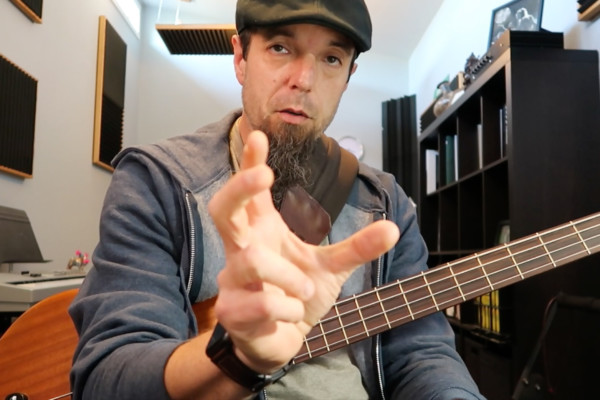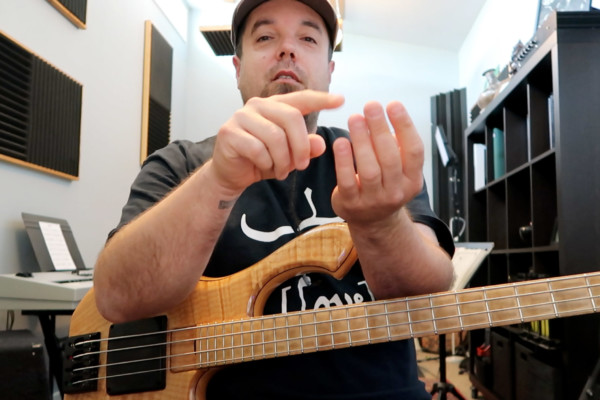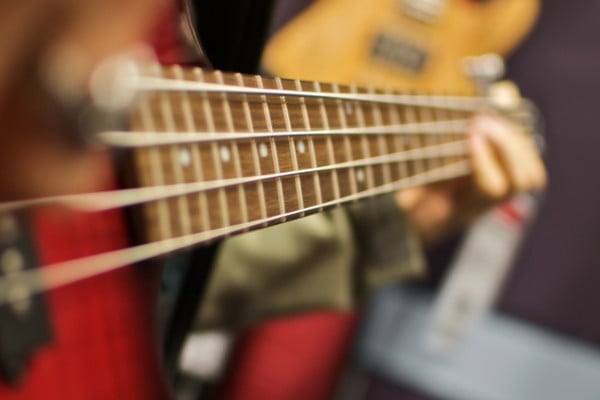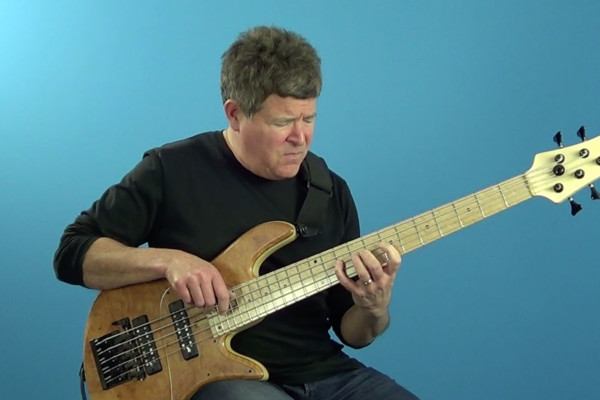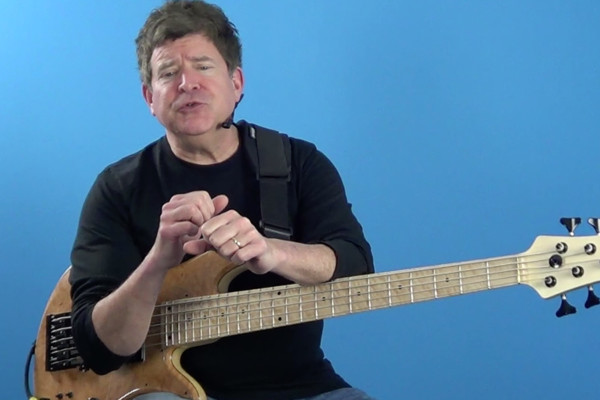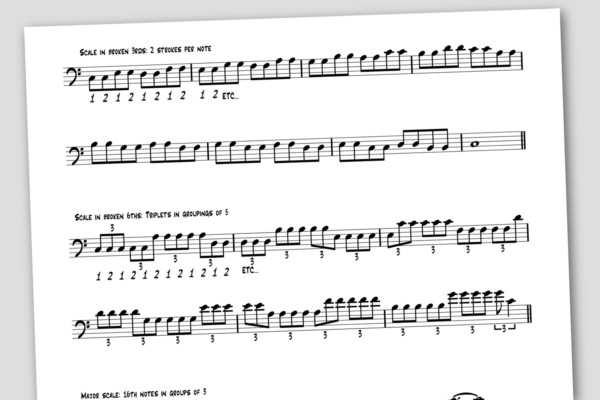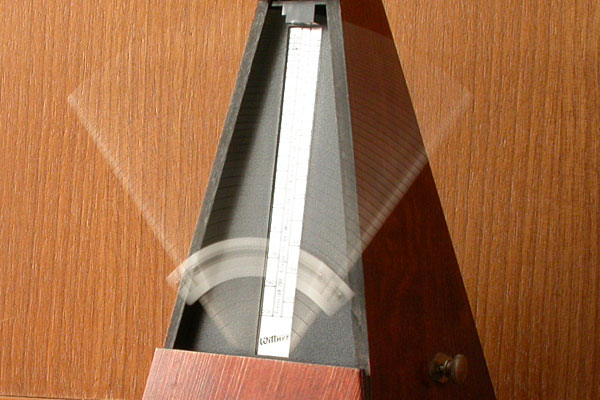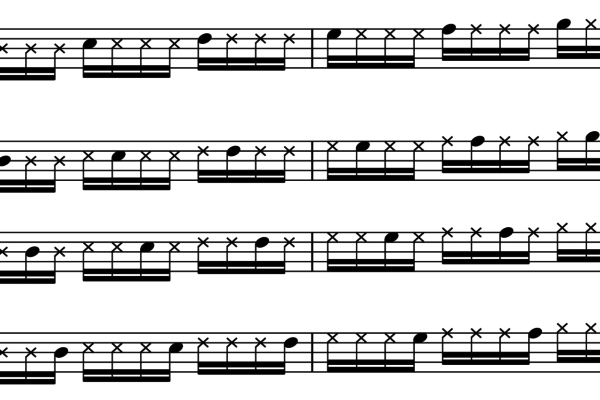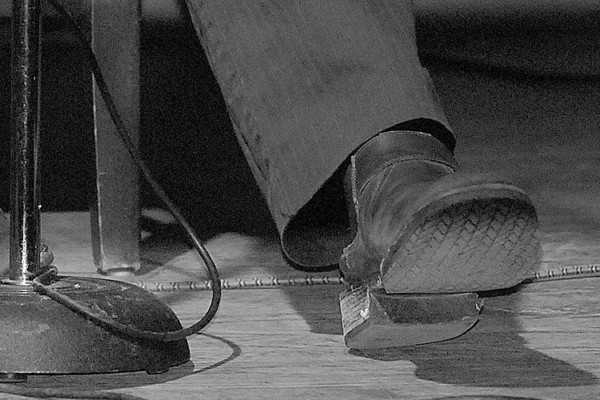Rhythm Archives - Page 2
Moving Between Triplets and 16ths
This week, Damian got a question about moving between triplets and 16th notes within a single line. He decided to reply with a video on how he feels and practices the divisions.
Keeping Your Place with Timing Issues?
This week’s “Ask” column focuses on a question from a reader who is struggling with keeping time and staying with the music over multiple bars. Damian offers advice with a range of tactics for helping solve this problem.
Subdivision Exercises
For this week’s column, a reader asked about practicing rhythms. Instead of writing out a response, I decided to make this video to show you how I practice subdivision exercises.
Exploring Pedal Tone Rhythms
Q: What kind of rhythms should I play during pedal tones? A: I get asked this more often than one might think. The quick answer is to use whatever rhythm you think compliments what’s happening around you. Of course, I’ll suggest a heavy dose of listening to hear how different players have approached pedal tones in different styles. For those...
Advanced Bass: Displacing Walking Bass Lines
Rhythmic Displacement is a concept based on being able to hear and perform rhythmic patterns starting on different subdivisions of the beat. The new superimposed rhythm creates an interesting illusion with the lines you are playing, which in turn creates tension. This lesson is aimed at giving you usable ideas for improvising walking bass lines using the concept of Rhythmic...
Reading Complex Rhythms
Q: I’ve only been playing bass about 1.5 years – still a newbie trying to learn the tricks of the trade. I mostly learn a song and play basic, but as of late, I’ve been learning to read. I’m not fluent in reading, but that’s not my problem. My problem is trying to play the rhythm of the notation. I...
Advanced Bass: Modern Rhythmic Concepts
Rhythmic phrasing is an often overlooked subject in bass guitar education, much of it left to chance and feel. However, the bass guitarist should become “rhythmic aware” as being an integral part of the rhythm section of a band. In this lesson I explain how to use rhythm as motific building blocks to develop your ideas – enabling you to...
Exercises for Improving Time
Q: What are some good exercises or practice routines to develop a strong sense of time? A: When I want to work on time, rhythm or technique, I think “What would a drummer do”? There are any number of ways to develop that internal clock. Here are a few ideas for you: 1. Playing Along. One of the most fun...
Improving Time and Rhythmic Accuracy
As important as playing with good intonation is, it is even more important to play with good time and rhythmic accuracy. Most of us know that counting, subdividing and practicing with a metronome can help. However, there are things we can do beyond these initial steps. Below are a few suggestions, and a few games, for taking your rhythmic accuracy...
Connecting Written Rhythms to Your Bass Playing
Q: I can read the notes on the staff and I can tell you if it’s a 16th note or a whole note, and yet, I can’t seem to play the rhythm. Any advice on fixing this? A: As I’ve said before, learning to read music fluently takes a lot of practice, just like learning to speak a new language....
Getting Comfortable with Odd Time Signatures
Q: Lately I’ve been finding myself in situations where tunes with odd time signatures are called up on gigs. I’m finding it a challenge to switch gears on the fly and be able to come up with a grooving bass line and not lose the one. How do you handle – and prepare – for these types of situations? A:...
Achieving Rock Solid Time on Bass
Q: I was wondering if you could touch on the topic of time, the most important part of being a bassist. Are there ways to get rock solid time anywhere from 60 bpm to 300 bpm other than just playing with a metronome? If so what do you suggest? A: Aside from my usual answers: a) repetition (hundreds of hours...
